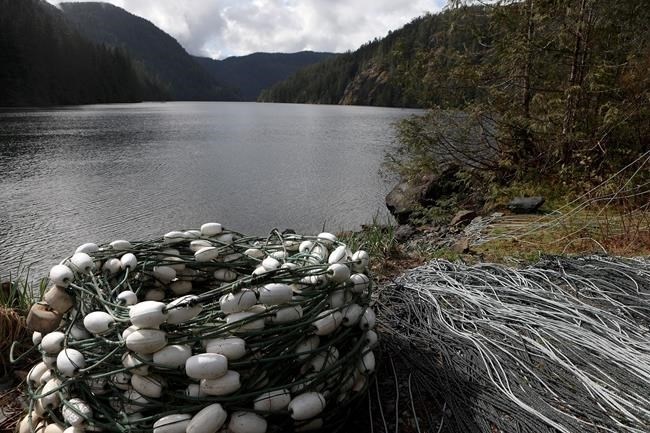
Planning is underway to rescue a two-year-old female orca known as the Brave Little Hunter as lines for Hukilau, an ancient Hawaiian fishing method, is spotted along the shoreline in a shallow area of the lagoon near Zeballos, B.C., on Tuesday, April 9, 2024.
Image Credit: THE CANADIAN PRESS/Chad Hipolito
April 10, 2024 - 8:30 AM
ZEBALLOS, B.C. - The British Columbia First Nation at the centre of a complex attempt to rescue a young killer whale stranded in a tidal lagoon near the Vancouver Island village of Zeballos says it is facing hard decisions.
The Ehattesaht First Nation says in a statement that it is relying on its traditional knowledge about whales and its territorial waters, along with modern tools, to rescue an orca calf stranded in a remote tidal lagoon.
Ehattesaht First Nation Chief Simon John previously said an attempt to rescue the female orca calf, estimated to be about two years old and already more than two weeks in the lagoon off northwest Vancouver Island, could occur this week.
First Nation members, federal Fisheries Department marine mammal experts, whale scientists and boat and machine operators spent much of Tuesday in meetings preparing for a rescue attempt.
The Fisheries Department says in a statement that rescue plans, approaches, and options were being discussed and reviewed, but the timing of an attempt to get the orca calf out of the lagoon to a possible open ocean reunion with its extended family members has not been set.
The First Nation named the young orca kwiisahi?is, or Brave Little Hunter, after it ventured into a tidal lagoon off northwest Vancouver Island with its mother last month, but tragedy resulted when the pregnant mother killer whale became stranded on a rocky beach at low tide and died.
This report by The Canadian Press was first published April 10, 2024.
News from © The Canadian Press, 2024